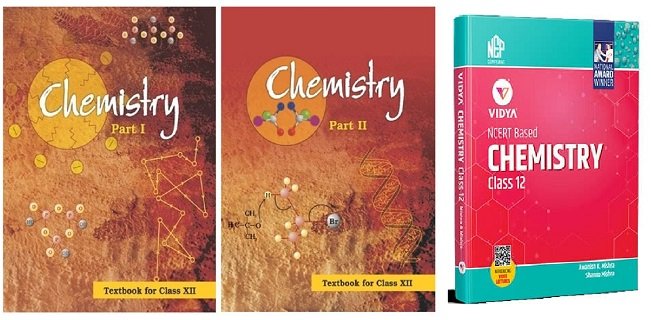Comprehensive Guide to Class 12 Chemistry Book
Class 12 Chemistry Book is a pivotal subject for students preparing for board exams and competitive tests like NEET, JEE, and others. A solid understanding of the concepts not only aids in academic success but also lays the groundwork for higher education in science-related fields.
This guide provides a complete overview of the Class 12 Chemistry book as per the NCERT curriculum, essential preparation tips, chapter-wise insights, and more. Whether you’re a student or a parent helping your child, this resource is designed to simplify your journey.
Table of Contents
- Introduction to Class 12 Chemistry Book
- NCERT Class 12 Chemistry Syllabus
- Key Features of the Book
- Chapter-wise Breakdown
- Exam Preparation Tips
- Additional Resources and References
- Frequently Asked Questions
Introduction to Class 12 Chemistry Book
The NCERT Chemistry textbook for Class 12 is carefully crafted to align with the CBSE syllabus. It is designed to cover fundamental concepts, practical applications, and problem-solving skills essential for excelling in board exams and competitive exams.
Students often find Chemistry challenging, but with the right book, structured study, and proper practice, it becomes an interesting and rewarding subject.
NCERT Class 12 Chemistry Syllabus
Physical Chemistry
- Solid State: Crystal lattices, unit cells, and properties of solids.
- Solutions: Types of solutions, Raoult’s law, colligative properties.
- Electrochemistry: Conductance, galvanic cells, Nernst equation.
- Chemical Kinetics: Rate of reactions, activation energy.
- Surface Chemistry: Adsorption, colloids, and catalysis.
Inorganic Chemistry
- The d-Block and f-Block Elements: Properties, electronic configurations, and uses.
- Coordination Compounds: Bonding, isomerism, and applications.
- General Principles and Processes of Isolation of Elements: Metallurgy basics.
Organic Chemistry
- Haloalkanes and Haloarenes: Reactions, properties, and applications.
- Alcohols, Phenols, and Ethers: Classification, reactions, and uses.
- Aldehydes, Ketones, and Carboxylic Acids: Mechanisms and properties.
- Amines: Structure, types, and reactions.
- Biomolecules: Carbohydrates, proteins, enzymes, and DNA.
- Polymers: Types, synthesis, and uses.
- Chemistry in Everyday Life: Drugs, detergents, and food additives.
Key Features of the Book
- Aligned with CBSE Curriculum: Fully compliant with the board guidelines.
- Clear Concepts: Each topic is explained in simple language with real-life examples.
- Practice Questions: Includes in-text questions, exercise problems, and exemplar problems.
- Visual Learning: Diagrams, tables, and flowcharts simplify complex topics.
- Integrated NCERT Exemplar Problems: Provides challenging questions to test conceptual understanding.
Chapter-wise Breakdown
Table: Chapter Distribution of Marks (Board Exam)
| Unit | Chapters | Marks Weightage |
|---|---|---|
| Solid State and Solutions | Unit 1 & 2 | 7 |
| Electrochemistry and Kinetics | Unit 3 & 4 | 7 |
| Surface and Metallurgy | Unit 5 | 4 |
| d-Block, f-Block & Coordination | Units 6 & 7 | 11 |
| Haloalkanes to Biomolecules | Units 8 to 14 | 23 |
| Practical Chemistry | Experiments | 30 |
Detailed Insights
- Physical Chemistry: Focus on numerical problems and chemical equations.
- Inorganic Chemistry: Prioritize periodic trends and coordination chemistry.
- Organic Chemistry: Understand reaction mechanisms and functional group chemistry.
Exam Preparation Tips
- Focus on NCERT: Thoroughly read and solve every exercise in the book.
- Solve Previous Years’ Papers: Familiarize yourself with the exam pattern.
- Create Summary Notes: Highlight key formulas, definitions, and reactions.
- Group Study Sessions: Discuss and clarify doubts with peers.
- Practice Regularly: Dedicate time daily to numerical problems.
- Use Flashcards: Memorize organic reaction mechanisms efficiently.
- Revise Systematically: Allocate revision time for weak topics.
Additional Resources and References
While the NCERT book forms the foundation, the following resources can supplement your learning:
| Resource | Type | Details |
|---|---|---|
| NCERT Exemplar | Practice Book | Advanced questions for better understanding. |
| MTG Chemistry Books | Guidebook | Comprehensive explanations and practice problems. |
| Arihant All-in-One | Reference Book | Chapter summaries and exam-oriented questions. |
| Online Video Tutorials | Digital Resource | Simplifies complex topics with visuals. |
